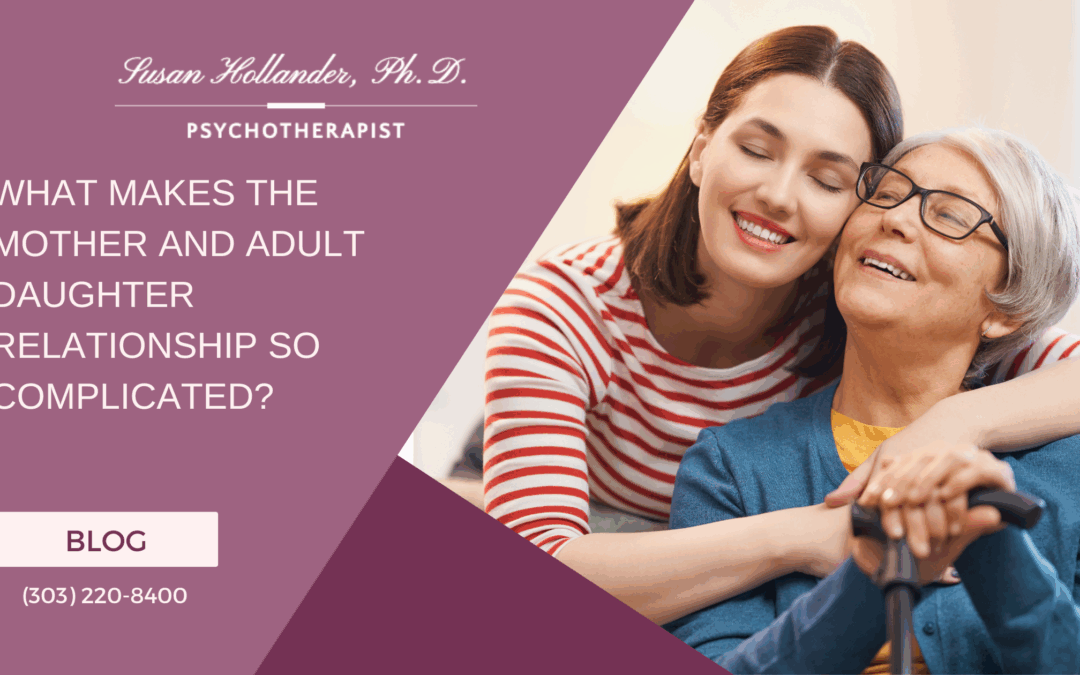Growing up, my mother was my whole world. When I was a little girl, she kissed my scraped knees, made my lunch just the way I liked it, and held me when I cried over a boy who never deserved my tears. She was the one who kissed my scraped knees, made my lunch just the way I liked it, and held me when I cried over a boy who never deserved my tears.
She was my main confidante. But something shifted as I grew older. The once effortless connection between us, the mother-daughter bond, became tense, like an unspoken battle between love and independence. If you’ve ever found yourself in a cycle of misunderstandings, resentment, or distance from your mother or daughter, you’re not alone.
Many women feel this struggle in their own lives. The relationship between a mother and an adult daughter is one of the most emotionally complex connections in our lives. But it doesn’t have to be a battleground. This blog post will help you understand why these challenges occur and, more importantly, how to face them with love, empathy, and healthy boundaries.
Why Is the Mother and Adult Daughter Relationship Difficult?
The mother- adult daughter relationship is complicated because it evolves over time. During childhood, a mother provides care and guidance, but as daughters grow into adulthood, they seek independence, which leads to conflict.
A study titled “Mothers’ and Their Adult Daughters’ Perceptions of Their Relationship,” published in the Journal of Family Issues, examines themes of intimacy and conflict within these relationships. This research highlights the complexity and sense of mixed feelings between mothers and their adult daughters.
Another factor? Societal expectations. Mothers are often seen as the emotional support and backbone of other family members, while daughters feel the pressure to maintain closeness. The push and pull between love and autonomy can feel overwhelming, especially when both women have different perspectives on what a ‘healthy’ relationship looks like.
Why Do Conversations Between Mothers and Daughters Turn Into Arguments?
Mother-daughter conversations often turn into arguments because both women feel deeply invested in the relationship. Research published in the British Journal of Developmental Psychology found that mothers are more likely to use emotional language when speaking with their daughters compared to their sons. This difference in communication style influences how children process and express emotions.
For more insights on encouraging positive parent-child relationships, you may find this helpful blog: Mastering the Challenges of Parenting: How Therapy Can Help.
How Does Unsolicited Advice Affect Mother-Daughter Relationships?
Unsolicited advice strains mother-daughter relationships. A study from the University of Michigan revealed that both adult sons and daughters reported more tension with their mothers than with their own friends’ fathers, particularly concerning unsolicited advice. This suggests that while mothers intend to help, unsolicited guidance is perceived as intrusive, which can lead to feelings of diminished autonomy in their daughters.
If you find yourself locked in yet another heated conversation about how you should raise your kids, choose your career, or handle your own choices after marriage, you’re not alone. Mothers often see themselves as protectors, and their guidance comes from love. Daughters, however, might interpret it as criticism. This difference in perception is what fuels many misunderstandings.
How Do You Set Boundaries With Your Mother (or Daughter) Without Feeling Guilty?

Discover insights on building healthy and positive relationships with your adult children. Visit the blog by Susan Hollander, Ph.D.
Setting boundaries in the mother and adult-daughter relationship is important for mutual respect. The key is to be clear, consistent, and compassionate. For instance, a study highlighted in Psychology Today discusses the impact of role reversal in parent-child relationships, stressing the importance of appropriate boundaries between family members to prevent emotional distress. The research suggests that daughters who experience role reversal or lack of boundaries with their mothers may face challenges in their emotional health.
An article from Counseling Today explores the root causes of mother-daughter conflicts, noting that a lack of clear boundaries often leads to misunderstandings and tension. The piece emphasizes that counselors continually encounter mothers and daughters struggling with boundary issues, which contribute to ongoing parenting disputes and emotional strain.
Here’s how you can do it:
- Use “I” statements: Instead of saying, “You always criticize me,” try, “I feel overwhelmed when my choices are questioned.”
- Be specific: Instead of “I need space,” say, “I’d love to talk on Sundays, but daily calls feel overwhelming.”
- Stick to your boundaries: If your mother crosses a boundary, remind her of it gently but firmly.
Boundaries aren’t about shutting someone out—they’re about creating a healthy space where a person and both people can be their full, authentic selves without resentment.
What If Your Mother Is Overbearing or Controlling?
An overbearing mother often struggles to accept that her daughter is an independent adult. For instance, an article from Psychology Today discusses how narcissistic mothers and narcissistic parents in general are emotionally needy, requiring their children to cater to their emotional demands, which is a form of control. This behavior often leaves the child feeling responsible for the mother’s emotional state, leading to a role reversal where the child’s needs are neglected.
If your mother struggles to respect your autonomy, consider these approaches:
- Recognize her fears, but don’t own them. She may be projecting her own worries onto your life.
- Stay calm. Reacting emotionally will escalate tension.
- Affirm your love while standing your ground. “Mom, I appreciate your concern, but I need to make this decision for myself.”
If the relationship feels toxic or emotionally draining, therapy will help you develop coping mechanisms and strategies to maintain your emotional needs and well-being while keeping communication open.
How Do You Heal Old Wounds in the Mother-Daughter Relationship?
Healing a strained mother and adult-daughter relationship requires effort from both sides. An article from Psychology Today highlights that unprocessed trauma negatively impacts relationships, leading to patterns such as relational sabotage and mistrust. The piece emphasizes that acknowledging and addressing these traumas through open communication is important for building healthier connections.
Start with these steps:
- Acknowledge the pain. If your mother hurt you in the past, express it in a calm and direct way. “I felt hurt when…”
- Listen to her perspective. She may not realize the impact of her actions.
- Forgive, but don’t forget. Forgiveness is about releasing resentment, not excusing harmful behavior.
- Seek professional guidance. A therapist will offer a safe space to share deep-rooted issues. Dr. Susan Hollander provides compassionate therapy services to help you reconnect and heal. Learn more about her approach here: Parenting Therapy Services.
What If Your Mother and Daughter Relationship Is Already Distant?
If the relationship has grown distant, rebuilding it requires patience. Psychreg outlines steps to heal a broken mother-daughter relationship. The article suggests that open communication, expressing appreciation, and spending quality time together are effective strategies. These consistent, small efforts can gradually rebuild the relationship.
Here are some friendly, calming, and sweet examples for the simple gestures section:
- Send a thoughtful text without expectation.
“Hey Mom, I saw a flower today that reminded me of the ones you used to plant in the garden. Made me smile. Hope you’re having a lovely day!” - Share a positive memory.
“Do you remember that time we stayed up way too late watching movies and eating popcorn? I miss those nights! Just wanted to say how much I appreciate those moments with you.” - Extend an invitation for coffee with no pressure for deep conversation.
“I’d love to grab a cup of coffee with you this weekend—no pressure, just some time to enjoy each other’s company. Let me know if you’re free!” - Express appreciation for something she did in the past.
“I was thinking today about how you always made my favorite meal when I was feeling down. It really meant the world to me. Just wanted to say thank you for always being there.”
Rebuilding takes time, but small, genuine steps open doors to connection again. A healthy adult approach includes patience, consistency, and a healthy adult relationship built on mutual respect.
You Can Have a Healthier, Happier Relationship
A Relationship Worth Nurturing
The bond between a mother and daughter is layered with history, love, and the inevitable growing pains of change. While it may feel challenging at times, this relationship can also be a source of deep connection and healing. It’s okay to acknowledge the hurts of the past while still holding space for love in the present. Growth doesn’t come from perfection—it comes from effort, understanding, and the willingness to meet each other where you are today.
Healing takes time, but even small steps can begin to repair strained connections. A simple message, a moment of listening without judgment, or even just the patience to allow space can open doors to something better. If you’re ready to nurture this bond in a healthier way, you don’t have to do it alone. Therapy offers a space where both voices can be heard, where healing can begin, and where love—imperfect but real—can find its way back in.
Ready to Heal and Reconnect? Let’s Take the Next Step Together
If you’re longing for a deeper, more understanding relationship with your mother or daughter, therapy can help. A safe, supportive space can make all the difference in rebuilding trust and connection. Learn more about what to expect from therapy or take the first step and reach out. Let’s start this journey together.



Recent Comments